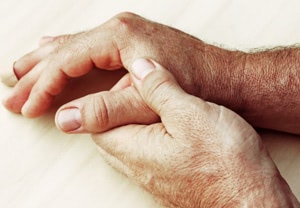When to see a doctor
If you suspect you have gout or have had a gout attack, talk to your doctor as soon as possible. The early diagnosis and treatment of gout make a difference in the development of the disease. Seek medical care immediately if you have fever, and one of your joints is hot and inflamed, as this can be a sign of gout or infection. Make sure you describe your symptoms precisely to your doctor.
Who diagnoses gout?
A gout diagnosis can be made by a physician (e.g. general practitioner, rheumatologist, nephrologist [kidney specialist]) by checking medical history and carrying out a clinical examination.
If you suspect you have gout, talk to your doctor:
Early diagnosis and treatment make a difference.
How does your doctor diagnose gout?
Medical doctors will usually make a gout diagnosis based on the classic signs and symptoms. They will also ask the patient about:
- Similar diseases in their family;
- The patient's medical history;
- The patient's diet;
- How quickly and intensely the gout attack started.
Doctors might also use blood tests, joint-fluid tests and imaging techniques like MRI to examine the stage of disease.
The symptoms and signs of acute gout attacks are often very characteristic, so the doctor can usually provide the correct suspected diagnosis. In advanced gout, radiography (imaging techniques) may show typical joint changes.

